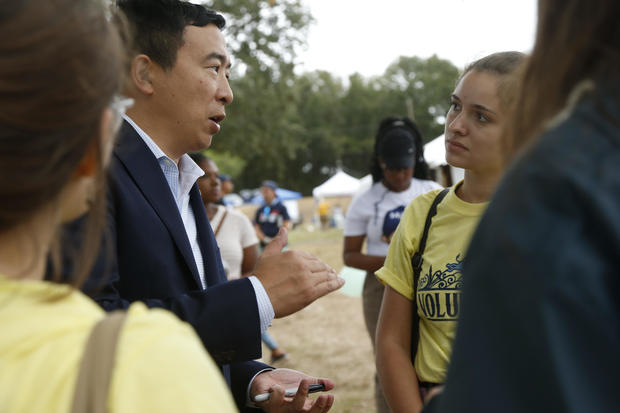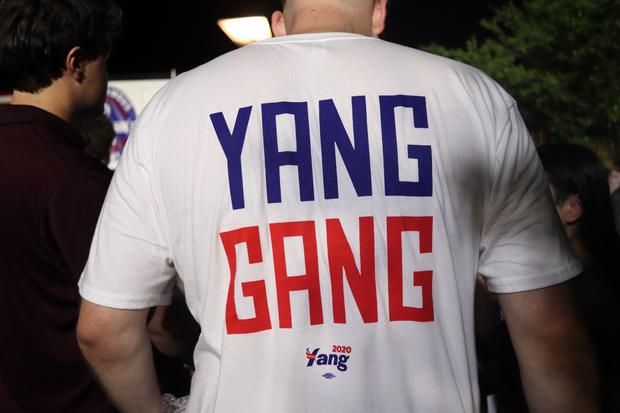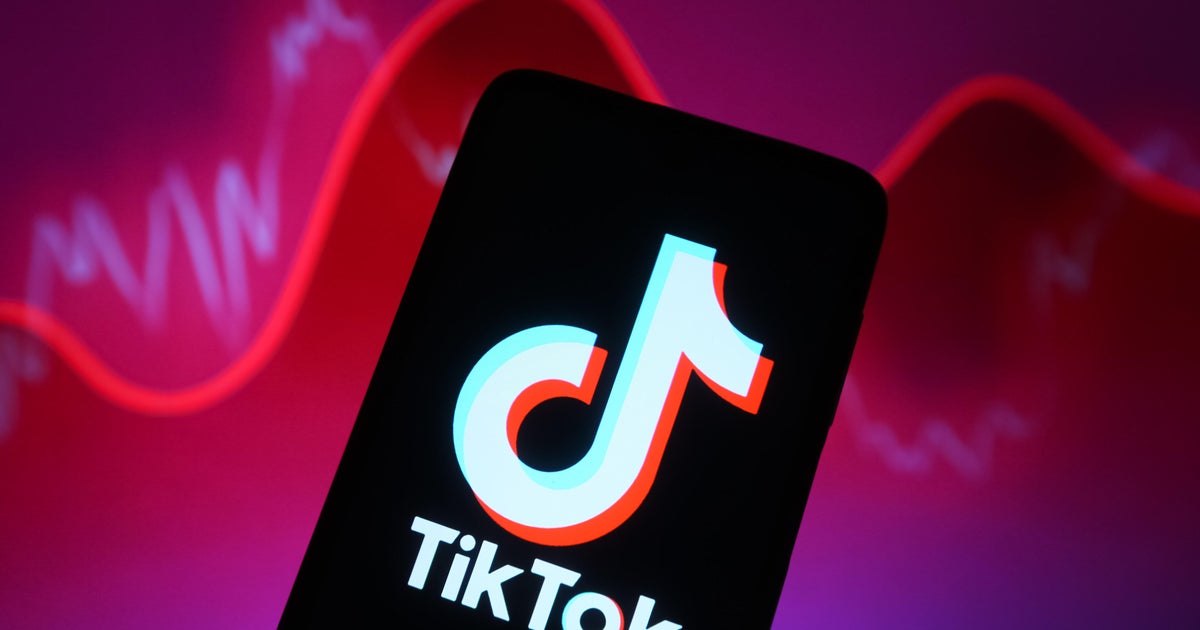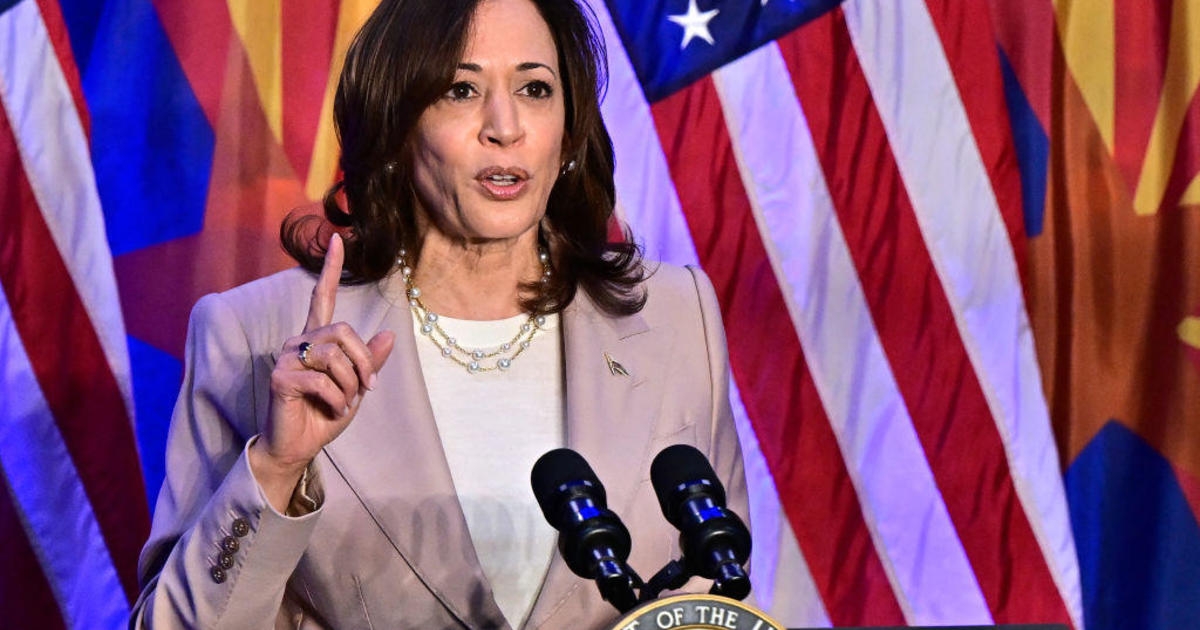In South Carolina, Andrew Yang maximizes digital reach to mobilize ground game
Barrett Hurd had never volunteered or even donated to a campaign before January 2019, when he says he first saw an interview with Andrew Yang.
"I didn't have any experience in politics to any degree but I just knew this was a campaign that I cared a lot about," said Hurd, who was working for an insurance company at the time. "They informed me that they didn't have anything going on in South Carolina and asked if I would be willing to get involved. I said, 'Sure, I don't know what you need me to do, but I'll do whatever I can.'"
Hurd became one of the Yang campaign's earliest digital volunteers in South Carolina. With direction from a "Yang Gang" digital organizer in Charlotte, Hurd launched South Carolina's first Yang Gang Facebook group to help centralize Yang-related information for interested voters.
"If you were in Charleston, Greenville, Columbia, you would end up going there," recounted Hurd. "The goal from there was to identify people in those other areas who could then start group pages in those areas."
That effort has evolved into more than 30 Yang Gangs across the state— 17 that South Carolina campaign chair Jermaine Johnson says are "100% structured." The Columbia and Charleston group, made up of about 250 members, is the largest of these South Carolina Yang Gangs. The campaign maintains that while not all of these members are showing up to in-person events, the majority are active online.
Hurd quit his job for a local insurer to focus on volunteering for the campaign and is now a full-time paid field organizer — one of several recent Yang hires in the Palmetto state. The campaign says that it has almost doubled its paid staff in the state within the past few weeks. Currently, there are 15 paid staffers and three field offices in the "first in the South" primary state. It's part of a broader expansion the Yang campaign has undertaken in recent months, due in large part to the success of its online fundraising and organizational efforts that predate its physical campaign presence.
"The first people who worked on the campaign were like, 'All right, how do we organize folks? Let's get them on Facebook, let's get them on Slack. It's what folks are comfortable with, what they use in their everyday life," explained Yang campaign digital director Eric Ming.
Today, the Facebook groups and Slack channels still exist as key elements in the Yang Gang's online volunteer infrastructure.
Potential Yang Gang members start by visiting the campaign's website. Volunteers are then directed to a Slack channel that instructs them on how to "text bank" to reach potential voters. Digital neophytes are provided with several "how-to" guides via e-mail on canvassing and hosting events, as well as various syllabi with crash courses on the campaign's preferred apps and platforms for communication and event planning.
Ming says the campaign also has volunteers acting as online monitors — some of whom work up to 40 hours a week — helping newcomers find local groups with which to work and providing instruction and tools to existing volunteer communities.
"Some of the groups formed organically. They found themselves online. They saw each other using the hashtag," said Ming, who joined the campaign in August.
Thanks in part to its enthusiastic group of online supporters and volunteers, Yang's campaign has grown significantly. He's been able to triple his fundraising haul from the second quarter to the third, from $2.8 million in the second quarter to $10 million in the third, largely due to online small dollar donors. During that time, the campaign opened new offices in Iowa and New Hampshire and made a push to hire dozens of new staff in the early states.
The stepped-up fundraising "allows us to open more offices and put more organizers on the ground," said Ming. "A lot of campaigns had a head start. They were able to transfer money from their senate campaigns and raise money from email lists they already had. We now have the resources where we're able to invest in that stuff as well."
In some respects, his campaign's financial success is almost certainly a product of Yang's ability to apply Silicon Valley efficiencies to the work of a campaign, deploying a highly motivated digital volunteer workforce that does not seem to be very large but has mastered the high-tech tools of the trade.
Those efficiencies have been great for Yang's fundraising, but they have not had the same impact on Yang's poll numbers. He's still mired in single digits, and he's still considered a long-shot candidate for president. But at the same time, he's one of eight candidates to have qualified for the November presidential primary debate, securing more than 300,000 unique donors and polling at 3% or higher in four of the qualifying polls.
Johnson, credits the success of the campaign's digital outreach to Yang's core message.
"Yang's message is all about embracing technology and embracing the future. And us as a Yang Gang, we truly believe in his message," said Johnson. "That's where the Yang Gang is at! The Yang Gang is on the internet. The Yang Gang is on social medial. We're all over the digital platform."
Hurd believes that large digital presence and sense of community is what draws people who are already online to join the Yang Gang.
"It's not like we're doing one thing, telling everyone 'hey, go on Twitter, go on Facebook, this is where we converge,'" said Hurd. "[It's] just a natural sense of people want to be a part of that online community, and they just fall into it."
Ming says it's that combination of authentic enthusiasm and online omnipresence that will continue to make the Yang Gang an effective tool in the election.
"Ask any campaign, the most powerful way to convert a voter is talking to them one-on-one. Well, we have folks who have been organically doing that for months — trying to convert their friends, their family, and anyone who follows them online," said Ming.





